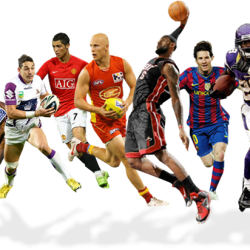 Betting has been around for as long as humans have. There are ancient Egyptian murals more than 4,000 years old that depict people engaging in games of chance. The appeal of gambling is that it appeals to our intrinsic desire for risk and reward – that triggers a surge of adrenaline that, for some individuals, is incredibly addicting. And of course, the prospect of winning lots of money with no work is quite appealing as well.
Betting has been around for as long as humans have. There are ancient Egyptian murals more than 4,000 years old that depict people engaging in games of chance. The appeal of gambling is that it appeals to our intrinsic desire for risk and reward – that triggers a surge of adrenaline that, for some individuals, is incredibly addicting. And of course, the prospect of winning lots of money with no work is quite appealing as well.
Every gambling game in existence is defined by the relationship between the stake and the return. Money or something else of value is wagered against an unpredictable outcome that determines whether you gain or lose what you risked. In spite of many long-standing taboos against gambling, it continues to be as enduringly popular now as it was thousands of years ago. Gambling has thrived with the creation of regulations that have helped to stabilize the sector and keep it out of the hands of criminals. With the invention of the Internet, gambling has now spread to every corner of the Earth.
This article aims to provide you with some useful sports betting tips that will help increase your odds of success when you delve into the crazy world of online sports betting.
How to Bet
Betting simply involves risking the loss of money or possessions in the hopes that you win more than what you originally wagered. A neutral third party, typically taking the form of sports betting sites, usually handles the betting process. Larger third-party entities generally get their cut from this process, which is why sports betting sites can be found nearly everywhere these days. In addition, these larger entities provide a safer environment for gamblers to bet their money, as seedy gambling houses in shady parts land-based enviroments are less likely to protect their patrons.
Laws and regulations prevent websites from stealing the money gamblers have put up, as well as ensuring that all cash transactions to and from the bookmaker are completely legal. But of course, a substantial number of betting happens on an informal or underground basis, and in these cases the promise that money will be paid in and out as promised completely relies on trust. Some businesses in the UK still operate on the basis of the gentleman’s handshake, once considered the standard for sealing a deal.
One particularly popular and fast-growing betting sector is that of sports betting. With the invention of the Internet, gamblers can now bet on races and matches happening everywhere in the world at any time. Plenty of websites exist to promote sports betting as a legitimate hobby or pastime, and advances in Internet infrastructure have made live and real-time betting a possibility. With advertisements for sports betting proliferating in the media, it is not considered to be the degenerate activity it was once as little as a century ago. While still subject to archaic and sometimes anachronistic laws, the introduction of the Internet has completely transformed this industry in a way nobody could have expected. Hundreds of sports betting sites have cropped up in the past decade, catering to every demographic you can think of.
 Types of Betting
Types of Betting
If somebody asked me to name every type of sport betting in existence, I could talk for hours and still not be finished. But while sports betting is as varied as the people that partake in it, nearly all forms of the activity can be broken down into three main types: traditional, fixed odds and exchange.
Traditional
Traditional betting, for lack of a better description, involves betting the way one would wager money before the invention of the Internet, and even television. Traditional sports betting involves a person placing a bet with the operator prior to the start of a match, and once the match finish the winners would collect their winnings, with what you win is determined by the initial stake multiplied by the odds at hand.
Most traditional sports betting involves horse racing, although contemporary sports have their own lively betting sections available. The odds are calculated both at the time of betting as well as when the race starts (these are known as the ‘Starting Price’ odds). Odds are calculated purely by supply and demand – if a large number of players bet on a single participant, then the odds of victory goes up and the payout goes down. This works in reverse as well. This style of betting is gradually disappearing on sports betting sites due to the way players on the Internet can tilt the odds so quickly, but the practice persists in many traditional sports betting venues.
Fixed Odds
The method of betting with fixed odds is fundamentally the same as betting in a traditional setting, except the odds can change even after you place your bet. The precise nature of these fluctuations changes from one area to the next, but it all follows the same principle of statistical probability. Bookmakers intentionally offer odds that are calculated to produce a positive return for them after every game, although this doesn’t always work out in practice. Some players will continue to bet even if the odds are changed, and other people will bet for a certain team regardless of “what” they are – these are usually people who are fanatically loyal to one team.
Exchange
Exchange bets are much different to the above, involving two parties and no intermediary. These are usually binary outcomes, the bet almost always involves something either happening or not happening. A great example of this is whether or not a certain player wins Man of the Match in a game of football – either they do or don’t. These bets take place between parties and are much more common on sports betting sites than in real world betting venues. What is appealing about this model is that any person can assume the role of bettor or bookmaker depending on the wager.
Profit from exchange bets doesn’t come from manipulating the odds so that the house comes ahead, but through commission. The person who is acting as the bookmaker takes a certain fee from each bet, with larger bettors contributing more in funds. They are completely neutral parties in any game with constantly changing odds, as their profit is in no way determined by who wins and loses, unlike traditional and fixed odds bookmakers. Live sports betting in particular makes use of this type of bet – the odds in these games can shift violently in a short period of time, making it difficult for even the most skilled bookmaker to reliably turn a profit by the end of a game.
Explaining Sports Betting Odds
Odds are a way of expressing a potential event outcome through a simple mathematical ratio the chances that something will happen versus the chance that it will not happen. Odds are never calculated with ratios under one – there is always a chance that something will not happen. So for example, if you see a horse at a racetrack given a 2/1 (two to one) odd of winning, this means that there is a 50% chance that the horse is predicted to win the race, meaning that winners will have their original stake doubled.
Higher ratios imply that there is less of a chance of happening. To compensate for the decreased odds of victory, payouts are higher if they actually do win. Bookmakers pay out smaller amounts more frequently for smaller odds and bigger but less frequent payouts for larger odds. The bookmaker always tries to ensure that the overall margin is in their favor, ensuring that they turn a profit after all bets are paid out. The overall odds that you’ll walk away with money are slightly lower than the odds that you won’t – this is essentially the fee you pay to have the privilege of betting in the first place. What has helped make higher odds related betting more popular is the introduction of free sports bet no deposit bonus options.
Never Underestimate Money Management
Some people will type in something like “free sports bet no deposit” and click on the first link they see. These are the people that lose money and ruin themselves. Smart gamblers keep an iron-tight grip on every penny they spend and win, and they never bet more money than they can afford to lose. Only about one in fifty people who regularly wager on sports betting sites consistently walk away richer than when they started, so never assume that you are going to be that one in fifty. However, as long as you keep an eye on all of your results you’ll help to limit your losses you can certainly increase your chances.